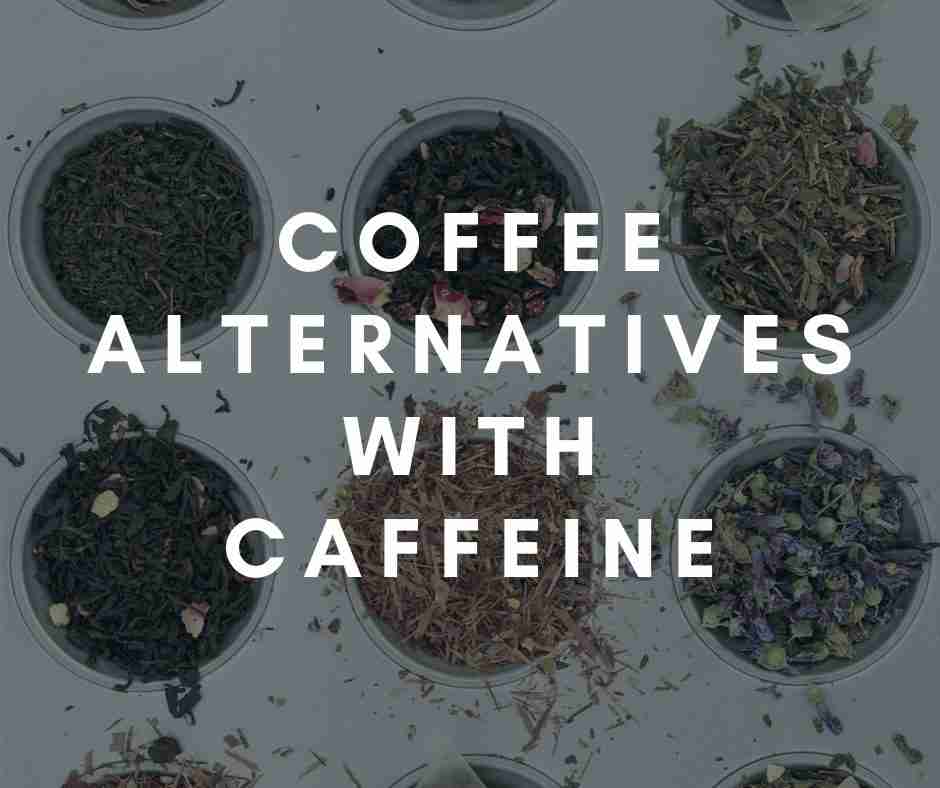
Billions of cups of coffee are drunk every day because coffee is the beverage for millions, if not billions of people. Yet, some among this number are looking to quit coffee for varying reasons. For some, it’s the excessive amount of caffeine (above 95 mg more than 1 cup of coffee), which is known to cause nervousness, and, for others, it is the digestive distress and headaches. For others, it’s the knowledge that coffee has adverse health effects too. It is believed to contain a carcinogen called acrylamide, an odourless chemical that is created during the roasting process.
If you are thinking of cutting down on your coffee intake but find losing the energy boost a bad thing, then cutting down on the coffee might be a bit difficult for you. The good news is that there are alternatives. Some alternatives help you kick the habit without on the caffeine buzz. After all, if it’s not the coffee’s flavour, it has to be the caffeine that has got you hooked to coffee.
Caffeine is an alkaloid that occurs naturally in some 60 plant species, the most popular of which are cocoa beans, kola nuts, tea leaves, and coffee beans. Caffeine is a drug that acts as a stimulant upon your central nervous system. It is responsible for the buzz you get when you drink coffee. It is a buzz that a whole lot of people can’t live without.
In this article, we will be looking at some of the best coffee alternatives with caffeine.
Matcha Tea
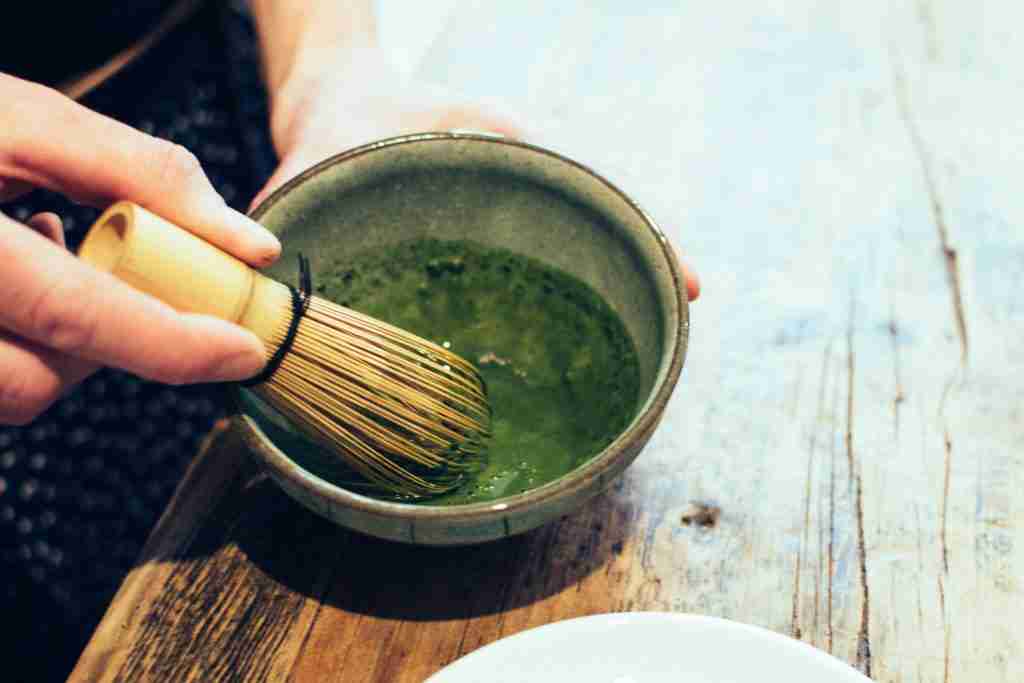
Matcha tea is made from a green powder formed by steaming, drying, and grinding the leaves of the Camellia Sinensis plant. It can substitute as a great coffee alternative as it contains caffeine in addition to L-theanine, which is an amino acid that relaxes the mind and positively affects cognition and mood. It contains epigallocatechin gallate (EGCG), which is an excellent source of antioxidants. So, in addition to getting weaned off coffee, you are consuming healthy compounds too.
Green Tea
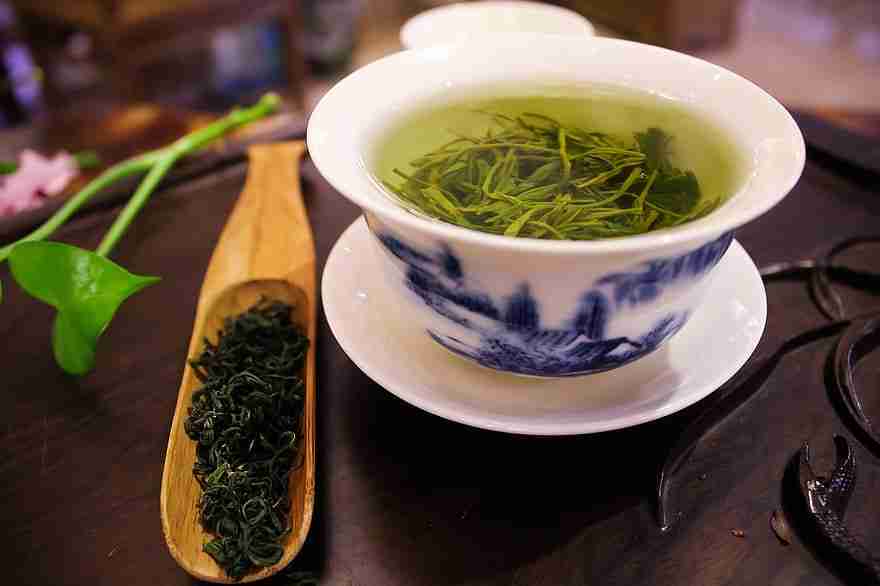
This is another excellent alternative to drinking coffee. It is made by using the leaves, stem, and the bud of the plant called Camellia sinensis. Green tea provides lots of antioxidants and anti-inflammatory properties. What’s more, there are several health benefits to be had from consuming green tea. Green tea contains lots of antioxidants and anti-inflammatory properties. It is known to improve cardiovascular health while boosting metabolism. Consumers of green tea are much less likely to get bladder, breast, lung, stomach, pancreatic, and colorectal cancers.
In addition to these health benefits, it also contains some amount of caffeine. A cup of pure green tea contains about 25 milligrams of caffeine per 8-ounce serving. This is around a quarter of the amount of caffeine to be had in a cup of coffee. However, the amount of caffeine in green tea varies from type to type. Some forms like the matcha tea contain even more caffeine. Although the amount of green tea to be consumed daily is still in contention, drinking 3-5 cups will provide you with all its health benefits.
Yerba Mate Tea
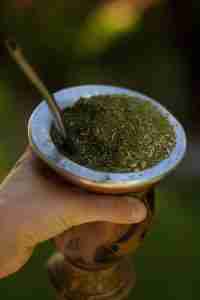
Yerba Mate Tea is a naturally caffeinated South American herbal tea that comes from the leaves and twigs of the Yerba Mate plant. It also tastes like coffee. Guess what’s more? One cup of Yerba Mate is believed to contain the same amount of caffeine in a coffee cup. So if you are looking for a coffee alternative without missing your morning caffeine, yerba mate tea is the right choice.
It also contains theobromine, which is a naturally occurring stimulant and is why consumers of Yerba Mate tea get smoother, longer-lasting energy without the jitters. It is loaded with tons of antioxidants that help lower cholesterol and blood pressure and prevent heart disease. There’s more. A cup of Yerba Mate tea contains minerals and vitamins like riboflavin, thiamine, phosphorus, iron, calcium, and vitamins C and E.
It is advisable to drink this tea in moderation though as too much of everything can be bad for your health.
Kombucha
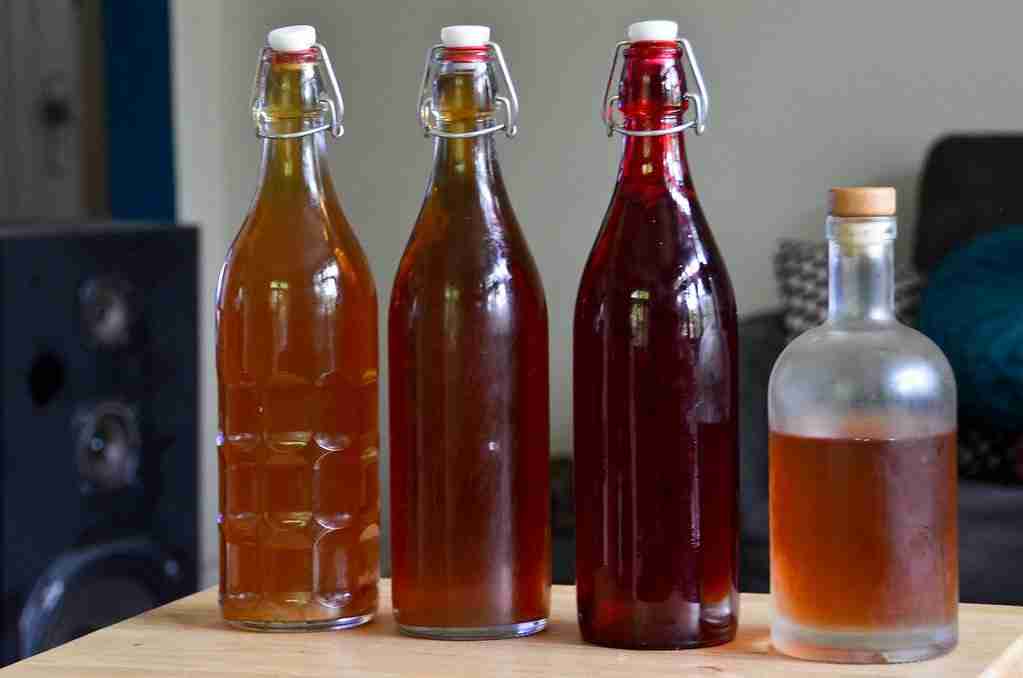
Kombucha is also another potential coffee alternative. Kombucha contains less caffeine per cup than a coffee cup, so it’s an excellent choice for folks who want a gentle caffeine boost. It is made by fermenting black tea with bacteria, yeast, and sugar. This fermentation affords Kombucha the probiotics, acetic acid, and antioxidants that it contains.
Since Kombucha uses tea as its fermentation medium, drinkers get the benefits of L-theanine, which works with the caffeine to create loads of energy without jitters. It might have a discouraging taste (ranging from sour, vinegar to apple cider). Still, the probiotic bacteria it contains help promote gut health, immunity, stable blood sugar, and even your mood.
Chai Tea
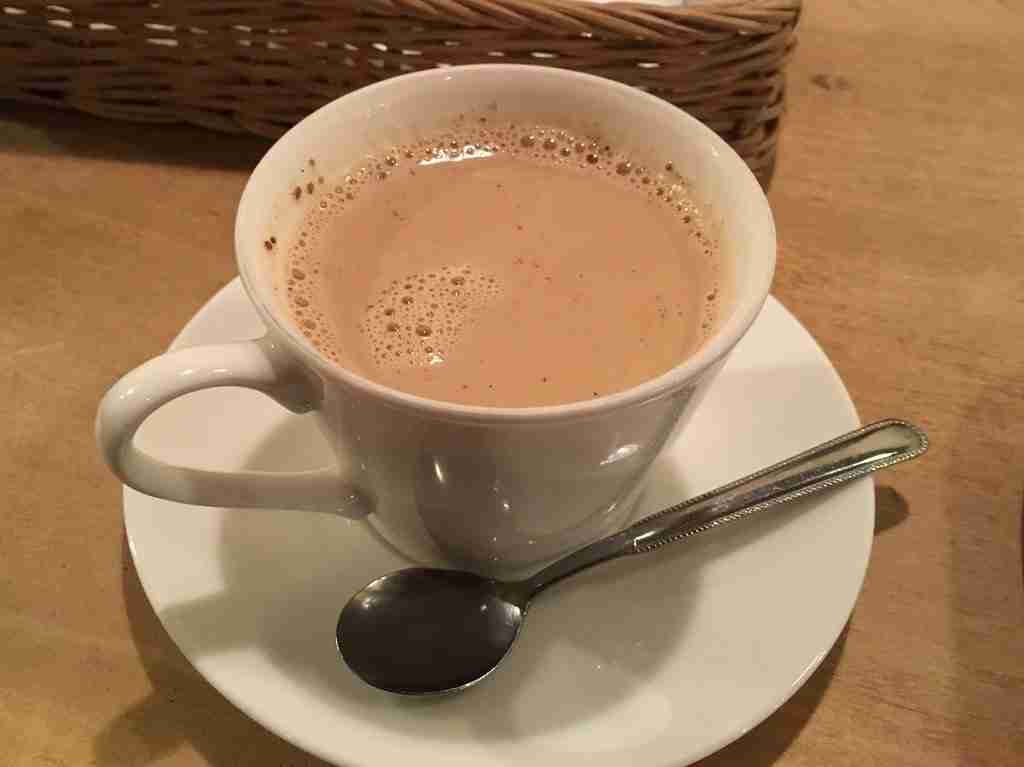
Chai tea is made from a combination of black tea, ginger, cardamom, cinnamon, fennel, black pepper, and cloves (among other spices).
A cup contains approximately 40mg of caffeine (4 oz of black tea) and is also a great alternative to coffee. When you take Chai tea, your body reacts differently to the caffeine it contains. The secret is that Chai tea contains a component known as tannin. Tannin interacts with the caffeine in Chai tea in a manner that causes the caffeine to be absorbed much more slowly. This induces a calm, relaxed, yet focused state. It is because of this characteristic that you can take it at night without fear of insomnia.
Chai tea is traditionally brewed using both warm water and warm milk and can also be sweetened to varying degrees. It has a soothing smell and a rich flavour. The latte version is more popular with coffee shops and cafes in the United States.
Black tea
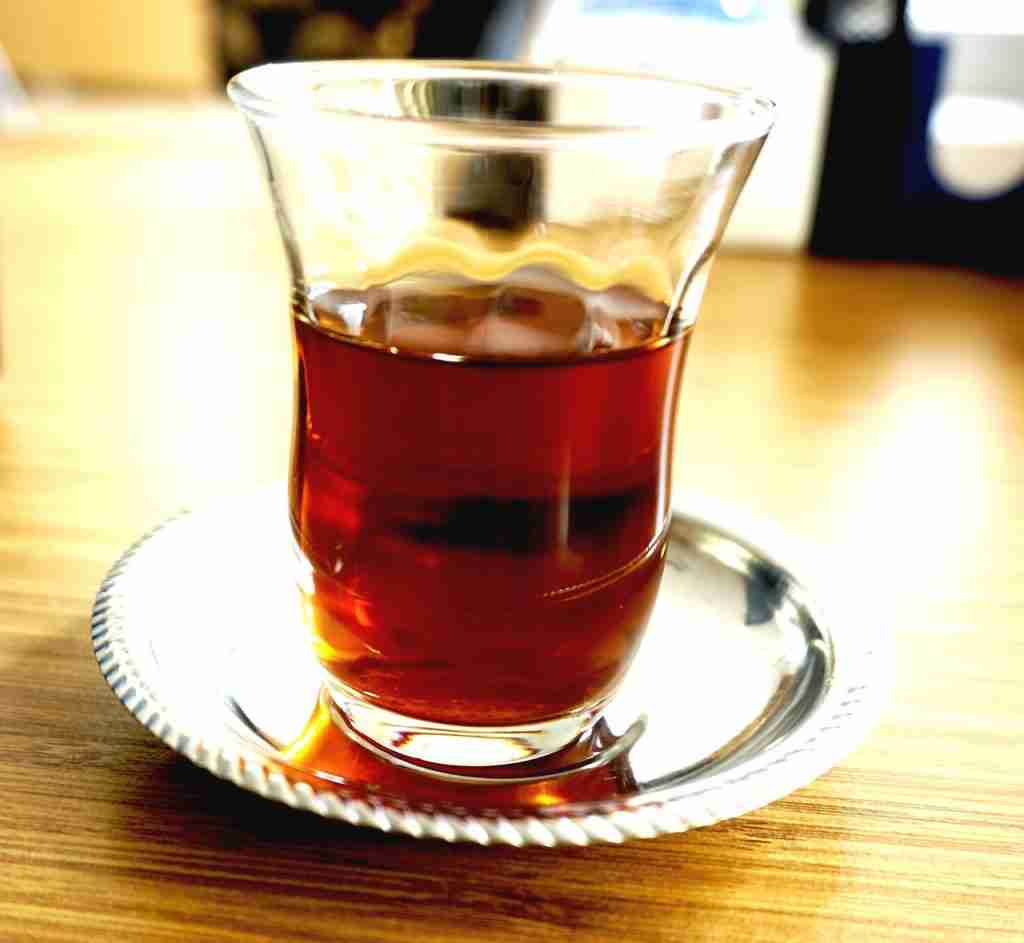
This is yet another great alternative to coffee. Although it may not be as strong as black coffee, it offers you considerable amounts of caffeine. An eight-ounce cup of black tea is believed to contain around 20 and 100 milligrams of caffeine.
Black tea has numerous health benefits thanks to its antioxidant properties; black tea consumers find that it improves cholesterol, blood pressure, and even gut health. It is lightly stimulating, offering its consumers a steady rise in energy without the jitters.
Hot Cocoa
Cocoa beans are a natural source of caffeine. Save for the extremely bitter taste, a cup of cocoa will provide significant amounts of antioxidants and minerals (iron, magnesium, and calcium). It is also mildly stimulating and is strong enough to give you the caffeine buzz you get from your coffee.
Caffeinated Chocolate
Caffeinated chocolate candies provide a boost of energy. They give a buzz that is equivalent to that of a cup of coffee.
Caffeine Pills
Caffeine pills are supplements made from caffeine. Some of these caffeine supplements contain natural caffeine that is extracted during the brewing process, while others contain synthetic caffeine.
The difference between these supplements and coffee is that caffeine pills have to be taken as recommended. When this is done, caffeine pills provide the benefits of caffeine without having to drink coffee. Although it is generally safe for consumption, you will need to limit your intake of it. However, caffeine pills provide a boost of energy without adding calories in the form of milk and sugar that are added to coffee.
Caffeine pills do not contain the acid that causes heartburn; neither does it contain coffee oils that can increase cholesterol levels. They will increase your urine output, though. You are more likely to overdose on caffeine pills than on cups of coffee. So you might want to watch your intake of caffeine pills.
Caffeinated water
Caffeinated water is simply water that contains some caffeine. Caffeinated water products are free of sugar, calories, or artificial ingredients. They may contain synthetic or natural caffeine and are available with or without flavours. Caffeinated water products range in caffeine content that ranges from 355–500 ml. So you have yet another alternative to coffee that gives you the caffeine kick any time you need it. With caffeinated water, you do not need to visit coffee shops or brew coffee yourself to get your caffeine fix. It’s all in the water. There is a caveat, though. Some caffeinated water products may
contain preservatives like potassium sorbate and sodium benzoate, which might be harmful to your health. Reading the label is a great way to avoid consuming toxic compounds.
Caffeinated Toothpaste
There are now caffeinated kinds of toothpaste that keep your mouth and breath fresh and clean while offering you some caffeine. The idea behind caffeinated toothpaste is that caffeine, which is delivered through the gums, travels faster than through the stomach. So when you brush your teeth with a caffeinated toothpaste, the caffeine is absorbed much quicker through the gums. The downside is that the buzz you get does not last as long as what you get from cups of coffee. Nonetheless, it allows you to kill two birds with one stone: improving oral hygiene while being stimulated simultaneously.
Smoothies
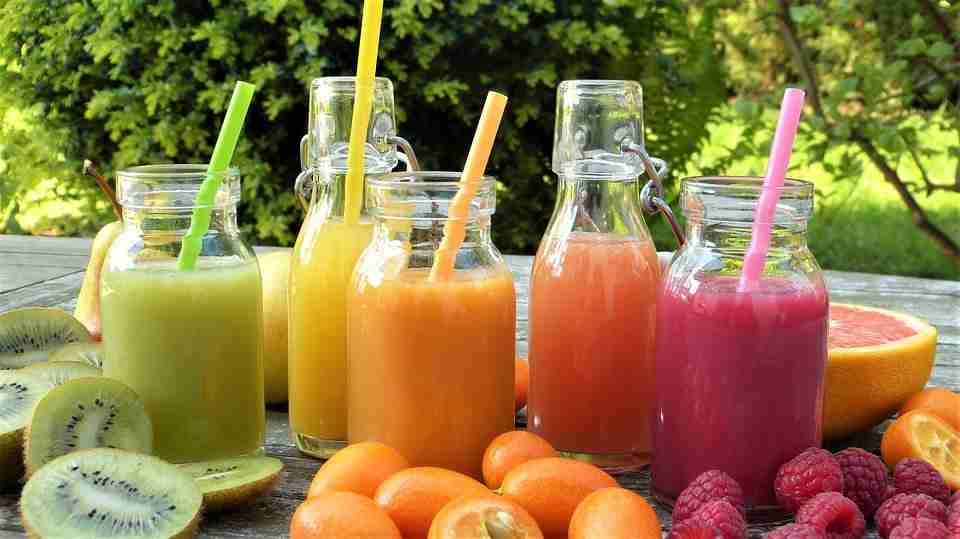
Smoothies can be a good replacement for coffee in the morning because of the plethora of natural ingredients that you can put in your smoothie. These natural ingredients can boost your energy instead of having coffee. By adding a few scoops of protein into your morning smoothie you can have a healthy and nutritious drink that you can substitute for your meal and coffee.
There are many recipes online that teach you how to make a healthy caffeinated and energizing smoothie without the use of coffee. You can usually mix in matcha, chocolate, and other ingredients to create a filling and caffeinated drink to start your day. Smoothies can be a great source of carbohydrates, fibre, antioxidants, protein, and even caffeine!
Energy Mints
Have you been drinking too much coffee and have been worried about having coffee breath? There are energy mints that will make your mouth minty fresh while also giving you that energy boost you need to give the day your best.
For example, Viter has a line of energy mints that has 40 milligrams of caffeine so by eating two mints it would be the same as drinking a cup of coffee. They come in chocolate mint, cinnamon, peppermint, and spearmint and can boost your energy five times faster than drinking a cup of coffee.
Caffeinated Soap
If normally shower in the morning and want to start the day smelling fresh and feeling energized there is caffeinated soap that will help you wake up! Not only does this energize you but it is also good for sagging skin and caffeine scrubs are often used on baggy eyes to tighten things up and keep things looking young.
Dirt Bird has an energy soap that is made with sesame oil beads that help exfoliate the skin while energizing you. It is made from sustainable ingredients including palm oil and coconut oil. This is perfect for someone who goes to the gym or travels often because it comes with a watertight reusable case for usage on the go.
Caffeinated Gum
For those who want to keep their mouths fresh but prefer gum over mints there are companies that make caffeinated chewing gum. This can help you keep your mouth icy fresh and keep you energized while you work. Caffeinated gums are great because you can keep chewing them while you work out or exercise to get that extra energy you need to keep going.
Takeaway
Caffeine is an integral part of people’slives. To be honest, most people who drink coffee do so for the buzz that caffeine gives. Nowadays, there are lots of ways to get your caffeine fix. All you need to do is to try any of the coffee substitutes that we described in this article.

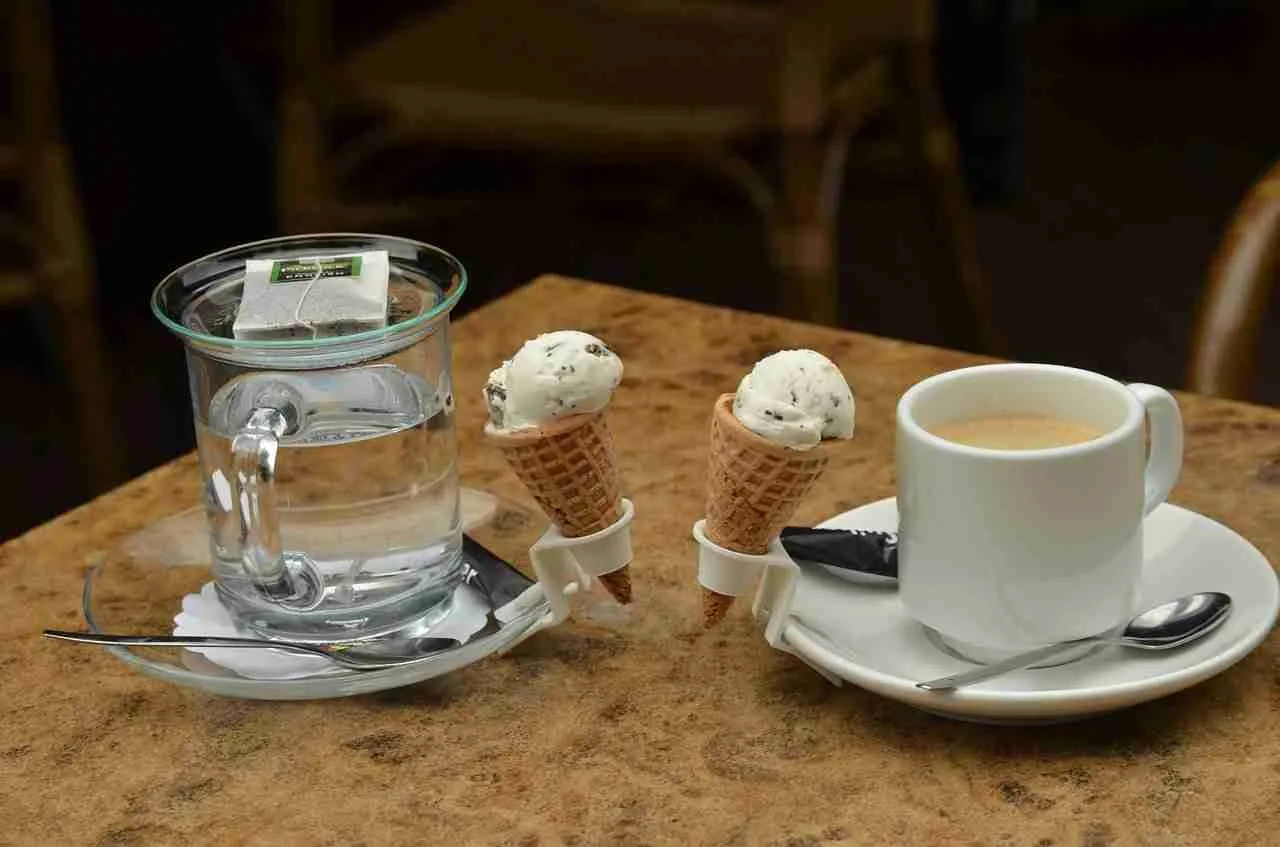
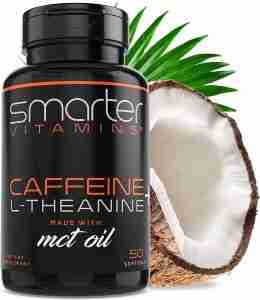

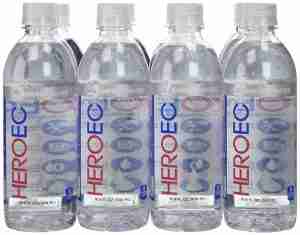
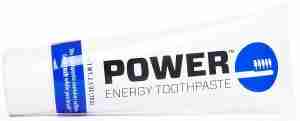
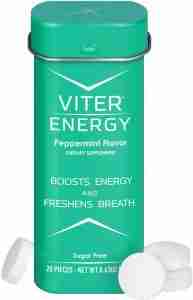
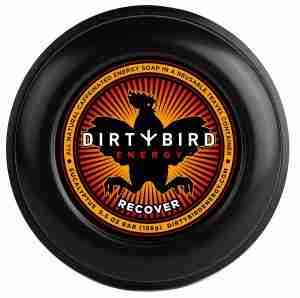
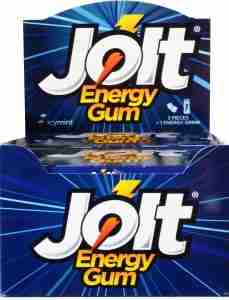
really amazing content I enjoyed reading through and getting new insight.